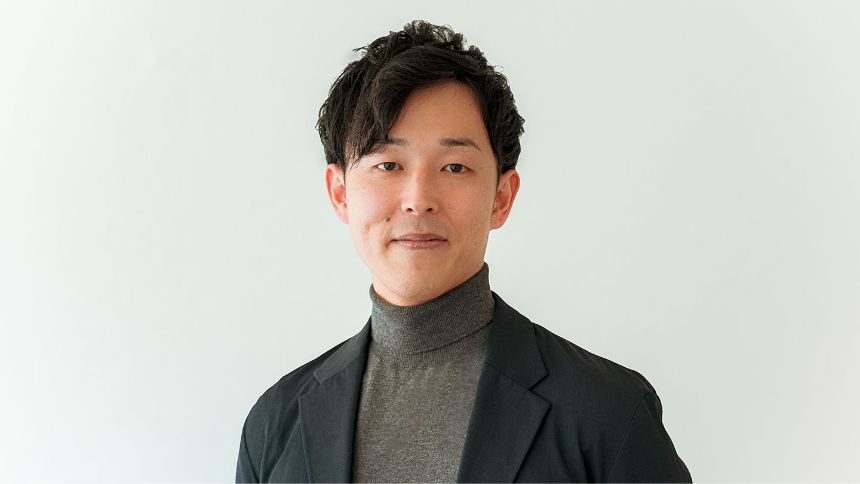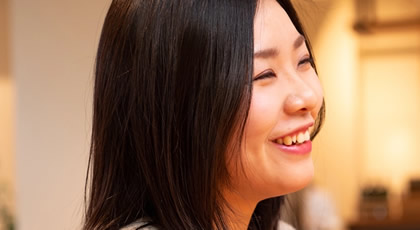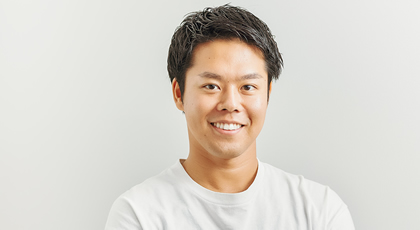
Once your perspective changes, everything changes.
As a freshman in college, at 19, he joined Apple's retail (sales) division as a contract employee. By his second year, he had emerged as one of the best in the company, maintaining a top 10% position in sales and customer loyalty. Later, he moved to the customer support department, where he ranked first in customer loyalty out of approximately 4,000 employees in the Asia-Pacific region. After graduating from university, he joined CyberAgent's Internet Advertising Division as a sales representative, achieving excellent results. We interviewed Mr. Daigo Sekine, who joined TYPICA in September 2021 after a "spectacular" career and became the head of the Taiwan Business Division in January 2022.
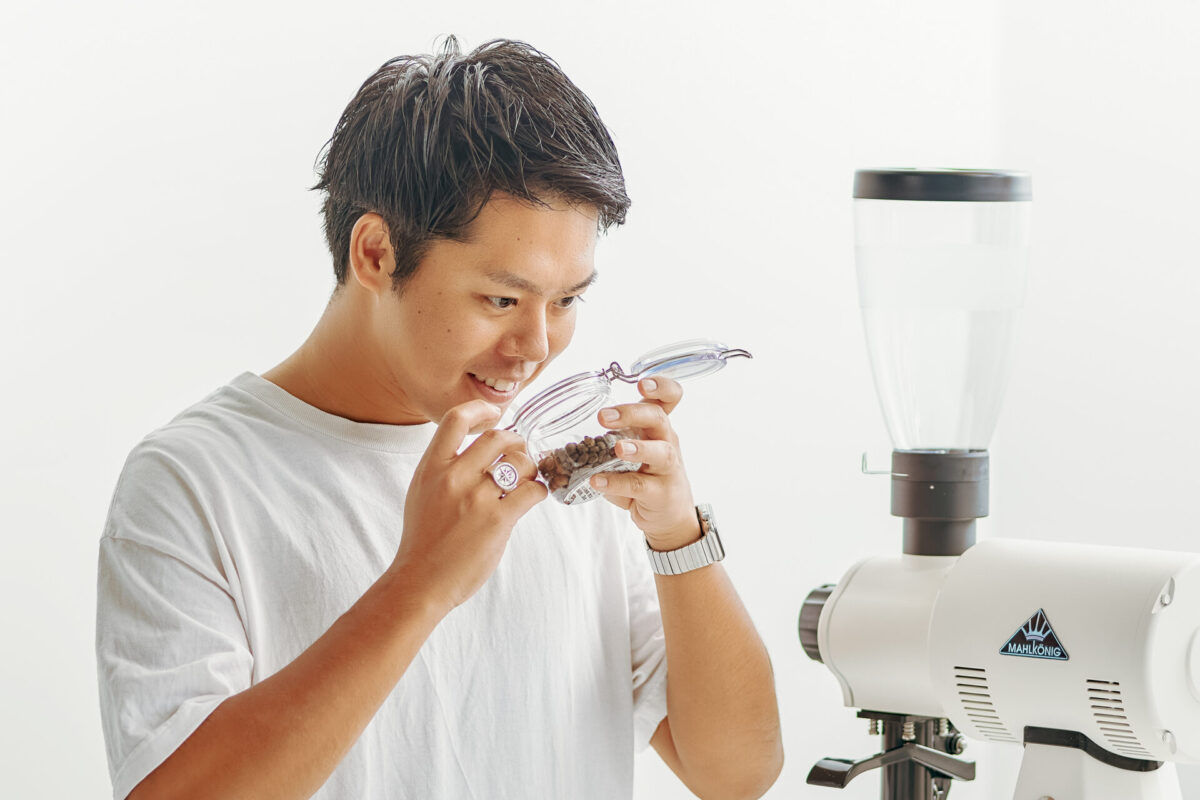
I wanted to become someone who could make numbers.
Then, in January 2021, Sekine received an award for outstanding performance at the end-of-month closing party (launch party) held at CyberAgent. Although, while making a speech on stage, he felt a sense of discomfort, “I wanted to be somewhere else.”
In 2018, Sekine joined CyberAgent after being selected for a project and having interned in the brand communication team of the marketing department at NIKE JAPAN headquarters, where he concluded that “you can’t talk about brands without talking about digital.” He worked as an advertising sales representative for some of Japan’s leading companies in various industries but failed to break through in his first year and a half.
Then, one of his bosses pulled him out of the company and transferred him to another department, resulting in a breakthrough. Sekine exceeded the numerical targets set as his sales quota for 13 consecutive months. During that time, he consistently ranked in the top 20 out of approximately 300 salespeople in the company and became a highly respected figure.
“I worked hard while sleeping because I was fully committed to achieving my numerical goals. I wanted to be someone who could make numbers for when I eventually started my own business.”
However, as Sekine became more and more passionate about his work, he realized that the managerial position he had longed for in the past three years was different from what he wanted to be.
“I was supposed to be in an office in a high-rise building in the middle of Shibuya, doing busy work with excellent colleagues, but I wanted to know if this was what I wanted to do. I was aware that I was working while being driven by something, so I had to push myself to work positively.”
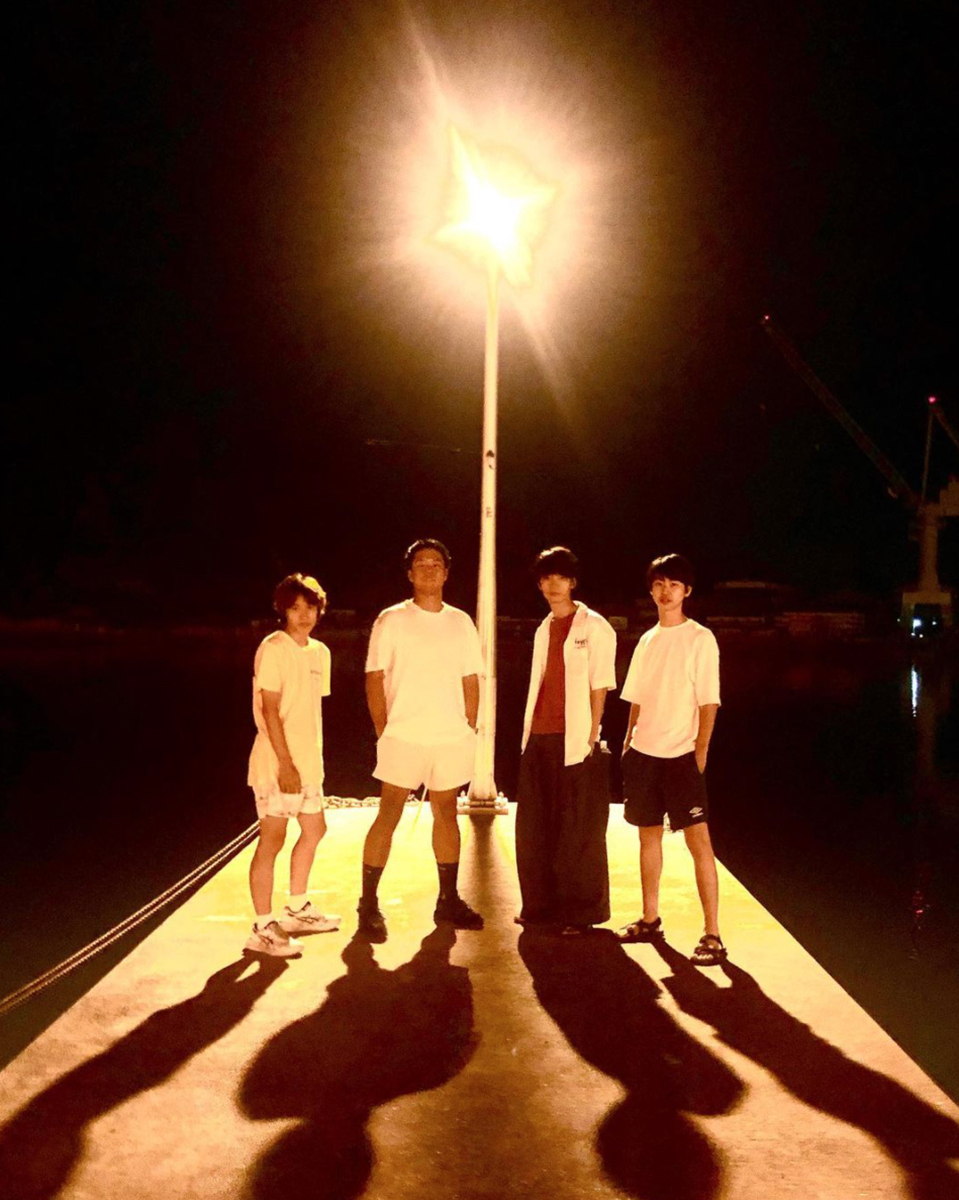
Deciding to join the company because I was excited about it
Before Sekine resigned from CyberAgent in May 2021, he took full advantage of his 60 days of paid vacation to travel around Shikoku with a childhood friend whom he had not seen in over ten years.
Driving in the beautiful wilderness, we reminisced about how much we loved this kind of thing, and it felt so good to be back in childhood for a moment that it erased the 10-plus years of blank space.
The people he met along the way, at an inn in Onomichi, Hiroshima also led him to new horizons.
People conscious of being themselves inspired me, such as Ren Sudo, the director of the film “Gyakkou (Backlight),” set in Onomichi. After that, I felt the desire to run purely according to my heart and to be serious no matter where I went.
At the same time, I realized that I had always been trying to become an elite. Somewhere along the way, aiming for first place had become my goal, and to avoid deviating from that goal, I had put on the brakes in the form of common sense. So, I was always afraid of going off the path.”
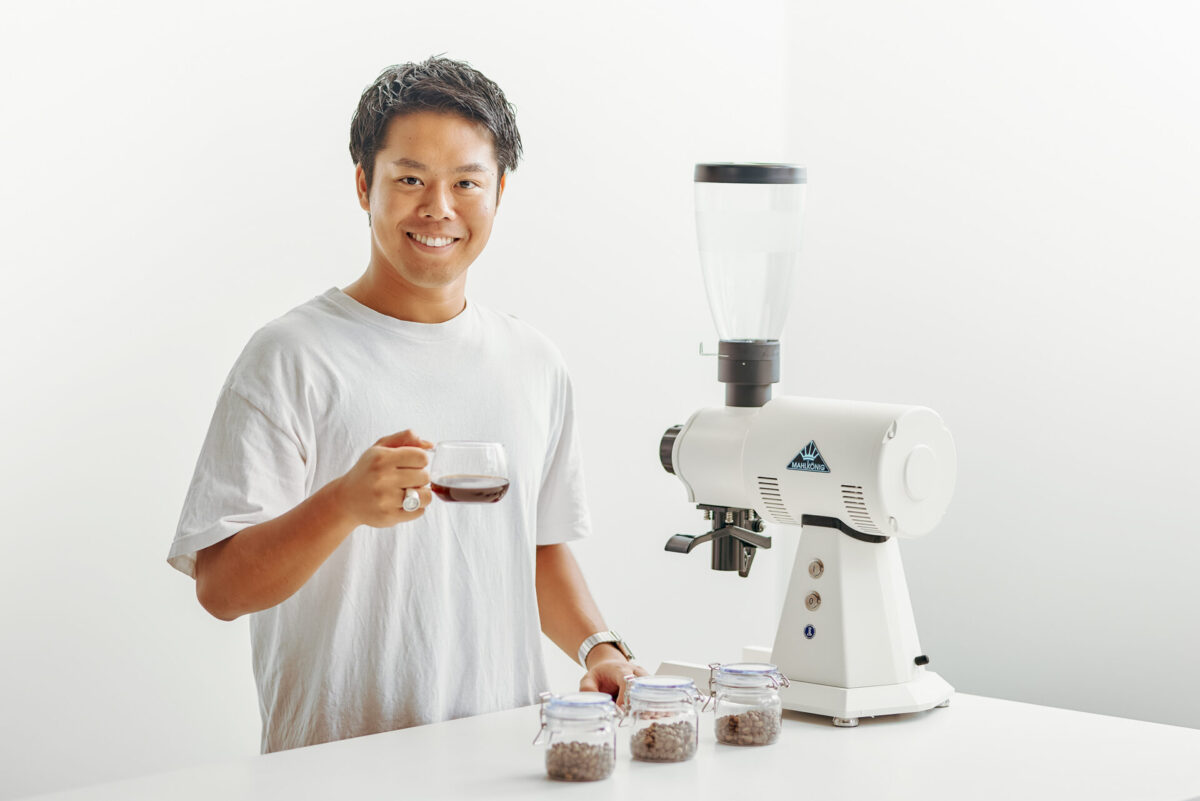
Freedom Stolen by Poverty
Sekine’s single-minded devotion to his work at CyberAgent can be traced back to his heartfelt desire to “become a big man.
It started ten years ago when he failed the university entrance exam and entered Nichi-dai University, his least favorite school. Then, he was driven by a desire not to end up just another student at Nichi University.
“It was natural for me to come in first in school sports tests. I was named a Yokohama City All-Star in basketball and a candidate for the national team. Like in those junior high and high school days, I wanted to be the most popular person and thought I had to become rich and make my mother happy. I was aiming for an annual income of at least 50 million yen, or at least at the billion level so that if my child wanted to go to school in Switzerland, for example, I could send them there without hesitation.”
For Sekine at the time, “to be a big man meant earning a lot of money.” So he aspired to become a “trading company employee posted overseas” as a job that would barely reach his annual income goal. Still, that option quickly disappeared when he learned he could not join one of Japan’s five major trading companies with a Nichi-dai University degree.
For a time, Sekine was discouraged, but he was quick to make the switch. He decided to intern at a venture company to become a candidate for any company, start his own business, or create a lot of money at a foreign company where merit is the key to success. While searching for the best solution to “become big,” Sekine had a “fateful encounter” with Apple.
“I just stopped by the Apple store to buy a new computer. But the people working there have different hair colors, are from different nationalities, and are of various ages. In a free atmosphere full of diversity, everyone seems to be working lively and happily, probably because the business is stable. The moment I experienced this firsthand, I had a gut feeling that this was the kind of organization I wanted to create.”
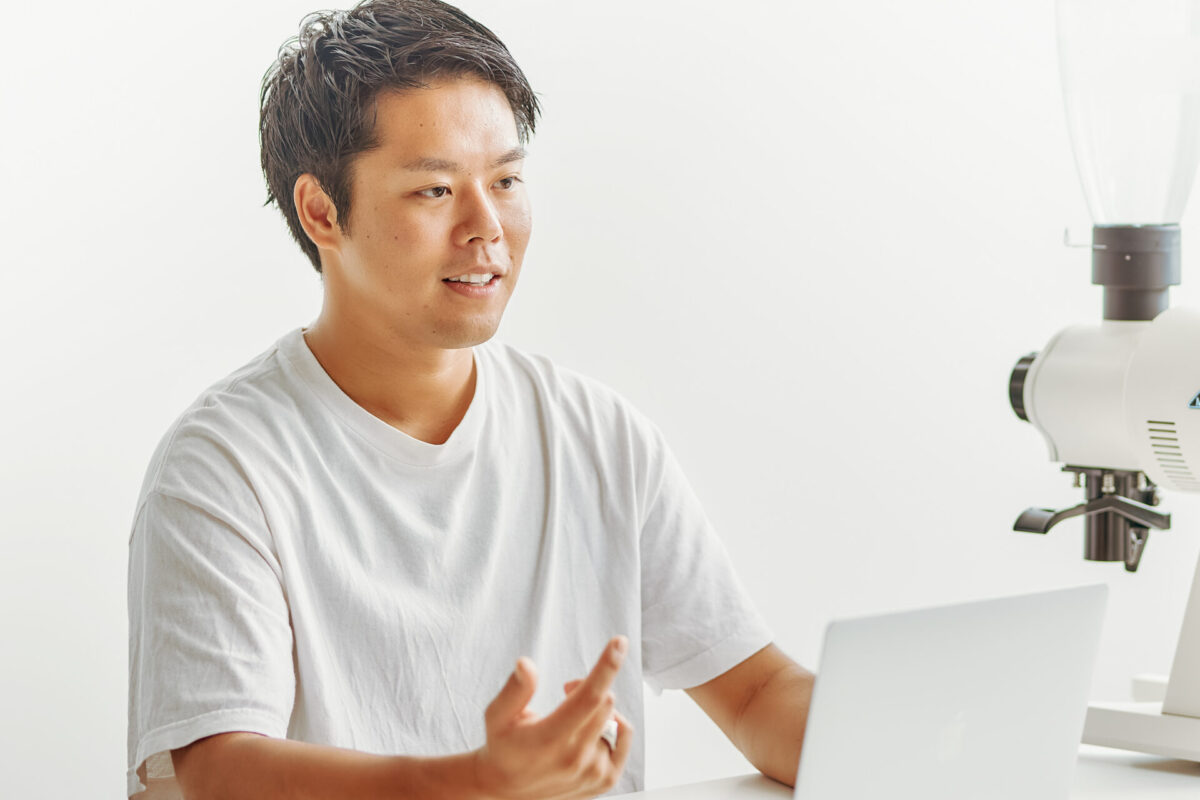
Apple’s free corporate culture awakened a deep-seated desire in Sekine.
“Perhaps it was because I saw my father, who had just finished middle school, unable to make a successful career change because of his educational background. No matter how good you are, if you need more credibility, the door will close on you. Having experienced such constraints in the world, I saw Apple as an ideal company that hired employees without being bound by their backgrounds.
My family was poor, to begin with, so I don’t remember my parents ever buying me anything. Instead, my grandpa on my mother’s side always provided it whenever I needed money.”
Sekine’s grandfather was a captain of a diplomatic merchant vessel for a major Japanese shipping company before becoming president of a group company.
The ordeal came when Sekine was in high school. His grandfather developed dementia, his father vanished, and his mother became ill. However, he had no siblings or relatives, and there were no adults around him whom he could rely on. With no friends to share his difficulties with, he felt his future was closed to him.
The high school Sekine attended was one of the most advanced schools in the prefecture, with many students going to Waseda-Keio and MARCH. However, despite being in such an environment, he spent many days wondering whether he should study for the entrance examinations under such conditions or whether it would be better to become a firefighter or a police officer after graduating high school and conflicting feelings.
“Even though I got accepted to Nichi-dai University, It took time to decide to transfer the admission fee of about 200,000 yen to the university until the day of the payment deadline. I did not want to go to Nichi-Dai, but I didn’t have the physical, mental, or financial strength to be a ronin. Ultimately, I decided to go for it because my mother’s words of encouragement pushed me to make the right choice.”
He used his earnings to pay for his college tuition, which was not enough to cover the cost of the student insurance policy his parents had accumulated.
“I felt the only way to get out of that state of being deprived of choice because of poverty was to make a lot of money. There was also a fear that if I didn’t keep myself going, no matter how pretentious, I would be dragged down into a pit of negativity.
I don’t want to be big; I want to be someone who can offer the choices I want. I was blessed with good friends, and now I am glad I was a Nichi-Dai student, but at the time, being a Nichi-Dai student was just a liability. So ultimately, I put on the “armor” of the big-name Apple because I didn’t want my options to be limited because of my academic background.”
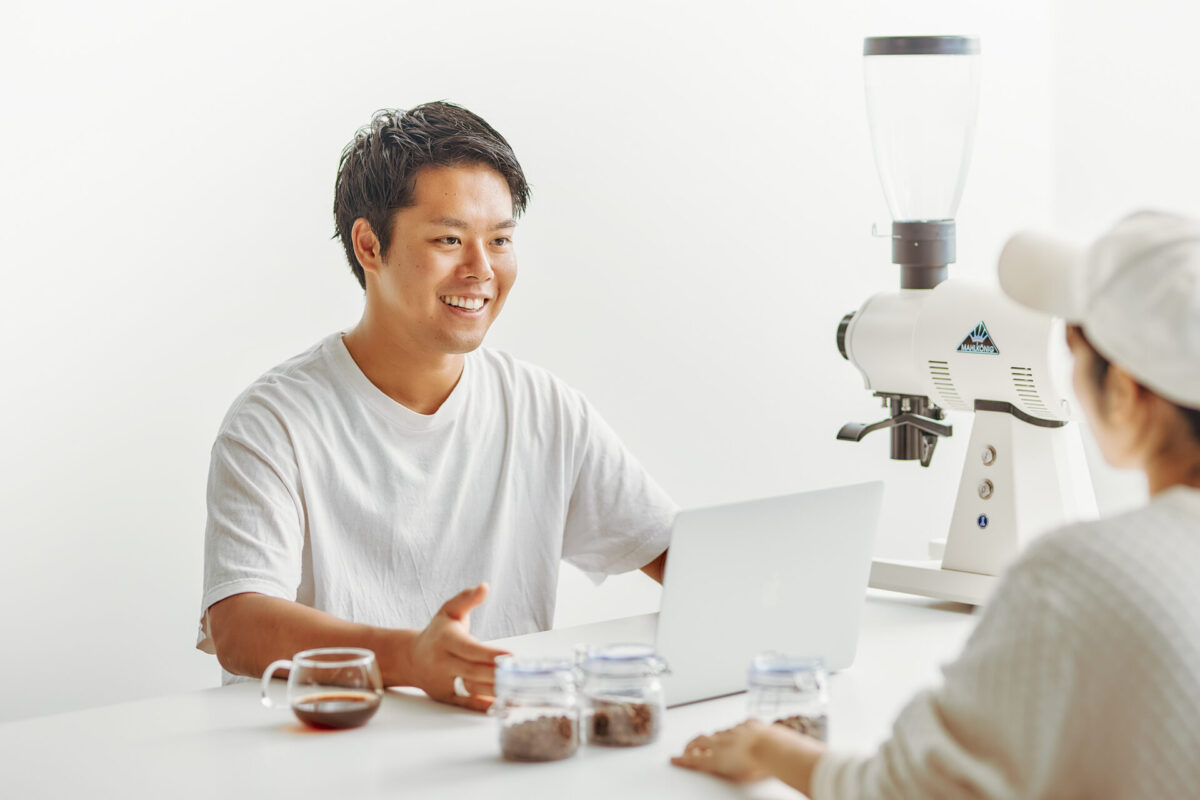
I wanted to connect with someone
Sekine was so fascinated with the work environment at Apple that on the day he visited the store for the first time, he told the manager right away that he wanted to work there. He spent time analyzing himself and verbalizing his thoughts to seize the moment that presented an opportunity, and he shared his thoughts in an interview.
“For me, this company is a stepping stone, and I want to leave this company as one of its aces so that I can build an organization like Apple. As a college student, I lack the skills and working experience of others. Even though I may not be able to do anything yet, I am sure that the people around me will get inspired by my honest efforts to grow more than anyone else, and overall productivity will increase. That’s why you should hire me.”
It worked because Sekine received a job offer as a contract employee in June of his first year of college. As a result, he began working four days a week while attending only the minimum required classes for a college student.
In his first year with the company, Sekine proved he was not bluffing. By the middle of his second year, he had become an ace employee, consistently ranking in the top 10% of the retail department in terms of sales and customer loyalty (trust and devotion).
“I always treated every customer with the mindset that I was “the face of the brand” and that I would give them a good experience no matter what kind of customer they were. So, even if a customer came in looking for an iPhone, I recommended they buy an iPad or a MacBook instead after listening carefully.
My efforts to see each customer as a different person with a distinct personality and to address their individual needs, of which sometimes they were unaware, led to the results I achieved. For a single greeting, I would change the angle of my bow, my posture, the direction of my body, and my tone of voice to match what the customer wanted.”
Still, Sekine was not satisfied with just that. He wondered if there was a job where his contribution could be more significant. Amid his search for a position where he could make a more substantial impact, he found the Genius Bar, which provides customer support for Apple products.
“Almost all customers who come to the Apple Store are Apple fans or people who have always been interested in Apple. In other words, my job was to increase their loyalty to Apple from +3 to +5 or +10. But, on the other hand, at Genius Bar, where people who distrust or are dissatisfied with Apple products come, I could turn -3 into +5 or +10.
Customers would yell at me, “What the hell is wrong with you?” But on the other hand, I was happy to see people who were angry or frustrated at first leave with smiles on their faces. The most rewarding moment for me was when I felt that my presence had restored the relationship between Apple and the customer. It was because my desire to build a good relationship with customers and to contribute to their satisfaction always came before my desire to sell products or to make a profit, which allowed me to achieve the results I wanted.”

I thought I was serious.
Since joining TYPICA, he’s been involved in the launch of new businesses in Asia, particularly in Korea and Taiwan. In January 2022, he seized the opportunity offered by CEO Goto and assumed responsibility for the Taiwan business unit.
“Beyond what I expected, I am feeling the emotional and tactile sensation that my every move is directly connected to the company’s growth. Unlike in the past, where I could run as fast as possible in a set environment, at TYPICA, which has only just been established, I have to start by recruiting friends and creating a path to run with them.
For example, when creating a roaster list for Korea and Taiwan, it is more productive to delegate the work to university students who understand Korean and Chinese than to have Japanese people, including me, do it. As we work toward achieving our goals with the help of part-time staff, interns, and others around us, I realize that people are what make the company what it is. That is why I am thrilled when they ask me to work overtime after spending a productive time together.
Honestly, many aspects of the company were not in place compared to my previous companies. Nevertheless, whether I grow TYPICA into a global company or create my own company based on my experience at TYPICA, it is directly connected to my dream, which is fresh and fun.”
His dream is “to own a yacht and live in Monaco,” a goal that struck a chord with Sekine when he saw some gentlemen in Monaco during a European trip in 2017.
“On the deck of a stylish wooden yacht they owned, the two gentlemen smiled and chatted, radiating a calm confidence and mental composure typical of people who have accomplished something. The admiration and excitement I felt at that moment are still deeply engraved in my heart.”
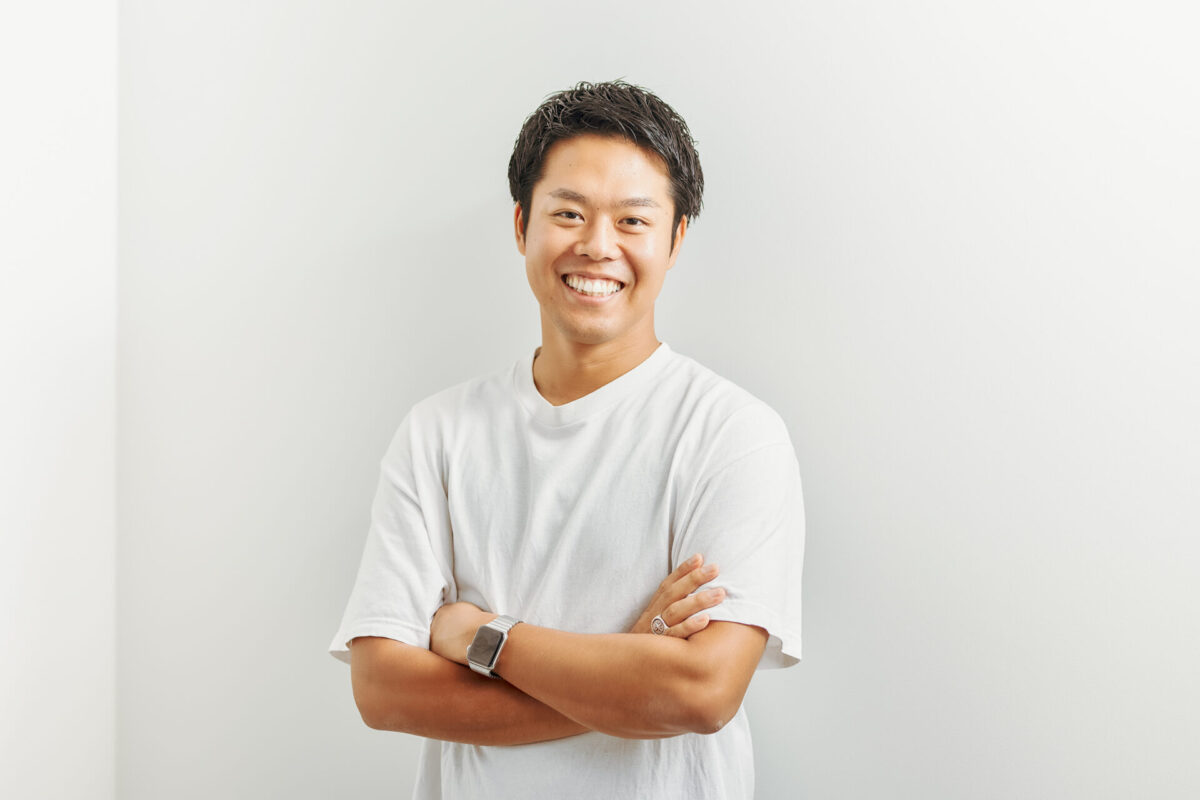
To achieve this dream, Sekine made it a habit at CyberAgent to get up at 5:00 a.m. on Saturdays and Sundays and sail across the ocean on his yacht, no matter how busy he was with work. Being far away from his daily routine, feeling the spirit of his grandfather, who was his only support, and being overwhelmed by nature’s energy helped him tune himself out.
“One of the reasons I wanted to work at TYPICA was because the representative of TYPICA wholeheartedly supports me in becoming the person I want to be. I am not who I am because of the company but because I positively use the company for the benefit of the company. Besides, TYPICA has a solid potential for business growth. Therefore, I would be able to make better use of my characteristics, motivation, and performance when I feel that I am contributing to someone else.”
However, no matter how grand a dream or firm a vision one might have, it is human nature to be swept away by reality before one’s eyes, and before you know it, you lose sight of what you should be doing. Sekine became aware of this at the end of 2021 when the company was in trouble.
When Goto asked him about the cause of the problem, Sekine replied, “I was just going along with the plan of the person in charge.” Goto harshly rebuked him in a message that said, “I am responsible for everything that goes wrong. Let’s all rejoice together when something good happens. I entrust you with my work with that in mind.
“I was unconsciously trying to protect myself by not wanting to be scolded. At that time, I noticed that my personalization level was low, or rather, I thought I was being serious about it. When it came down to it, I didn’t have a firm belief in the future fulfilled by TYPICA’s business.”
The team leader role is a new chapter for Sekine, who has achieved results as a player in the past.
“Although it has only been a week or two, I am beginning to realize the importance of being aware that everything I do is connected to TYPICA’s Taiwan operations. My work aims not to achieve a given number or KPI but to maximize the distribution of specialty coffee and increase the sustainability of the coffee industry. Therefore, I would like to raise my perspective to that dimension and develop ways to achieve results.”
They say one’s position nurtures one’ s character. Sekine’s new position has allowed him to develop his personality and character.
“If conventional company work is like making 1000 out of 100, TYPICA’s work is more like making 10 or 100 out of 1. As a new company that landed in October 2021, it has yet to develop an overwhelming loyalty like Apple’s among the Taiwanese people.
My current goal is to bring TYPICA to a point where every time I offer a new coffee bean, people all over Taiwan will be excited. If we can achieve such a future, it will enrich the lives of not only the producers but also the roasters and coffee drinkers in Taiwan in many ways. Furthermore, The experience of working together with my team members to get there will be the foundation for when I eventually become a manager.”
Photo:Kenichi Aikawa









